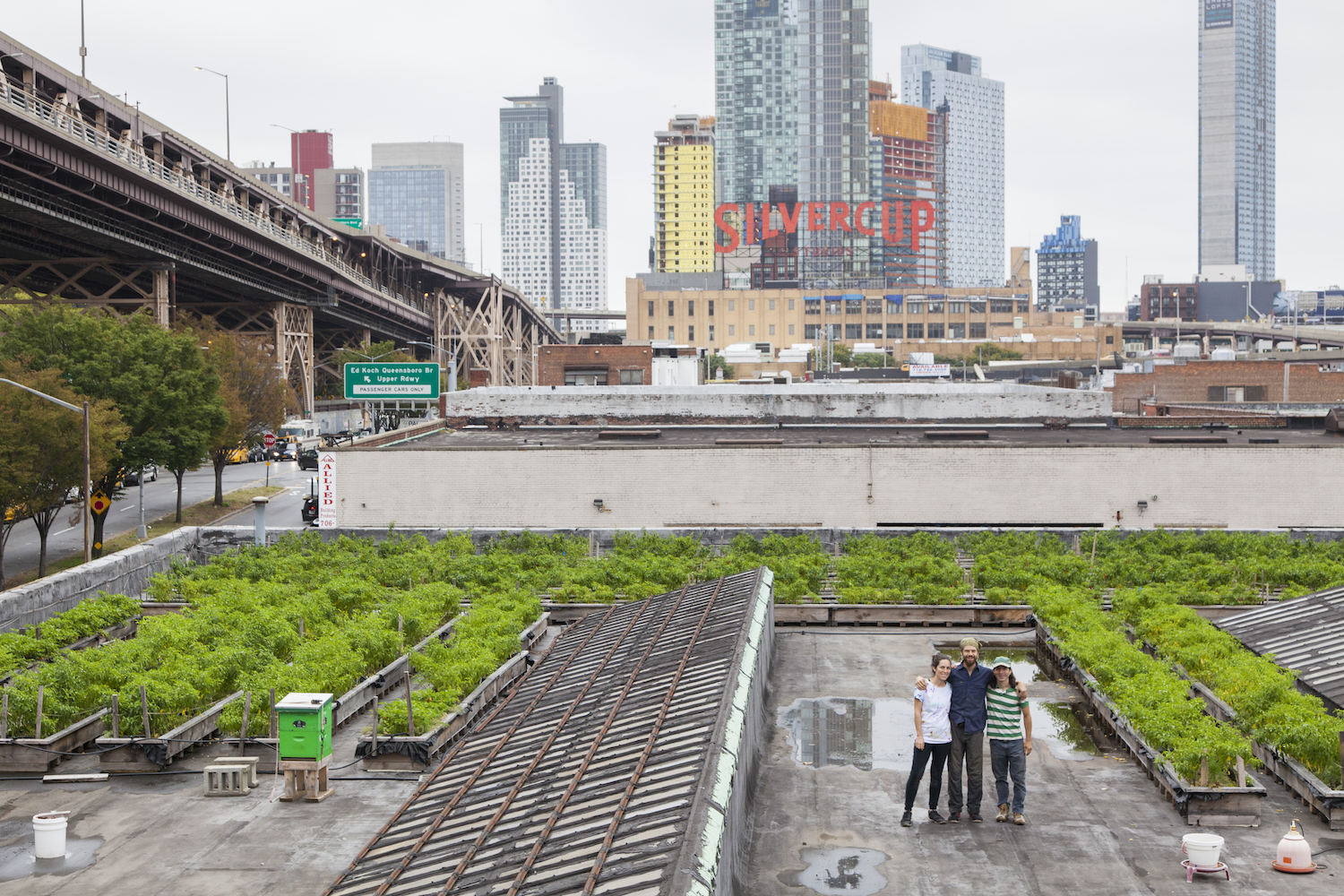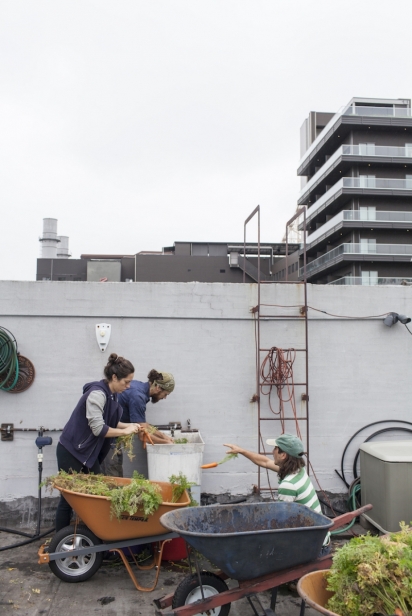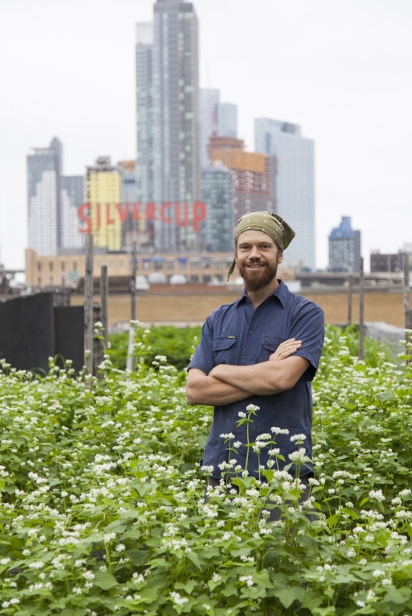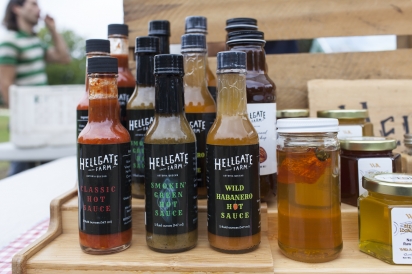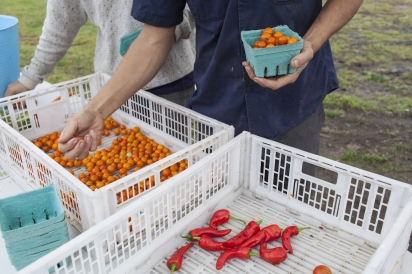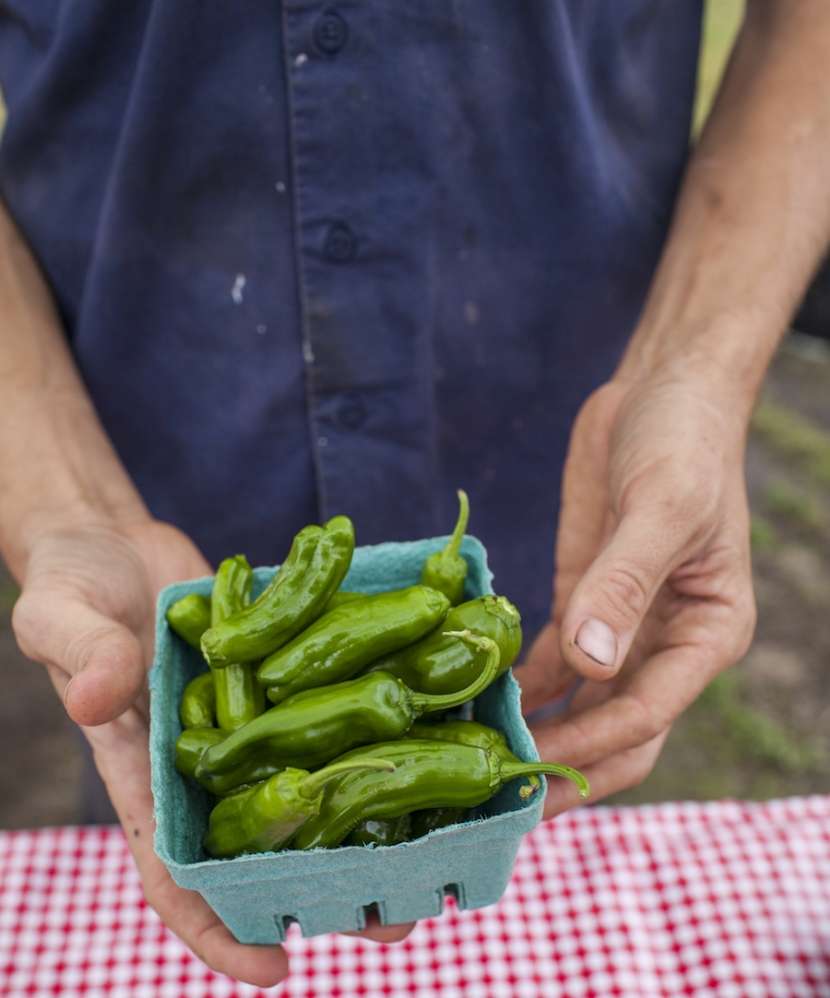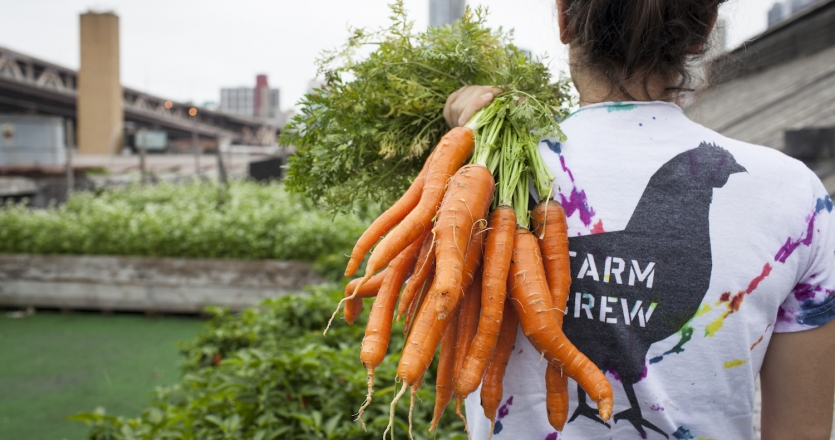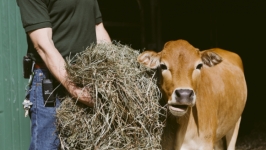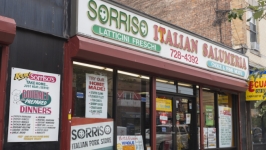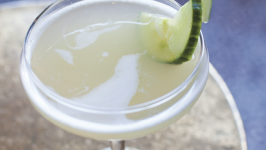A Harvest Hidden in Plain Sight
From the street below, Hellgate Farm shows no obvious signs of agriculture. A poolside playlist emanates from the day club across the street. Cars and trains rattle overhead on the beige Queensboro Bridge. But through an elevator repair shop and up a flight of stairs, a tiny urban Arcadia tops this creaking Long Island City warehouse.
On a late summer afternoon, volunteers sorted carrots pulled straight from the compost. Big white boxes hummed with bees against the gray expanse of Gotham. And disorderly rows of hot peppers stretched to the roof’s edge: Carolina Reapers curdled by their own heat, Shishitos long as green beans and Wild Brazils masquerading as the innocent bud of baby’s breath.
Robert McGrath founded Hellgate Farm in 2011, less a traditional farm than a patchwork of three urban gardens. McGrath and his 10-person, mostly volunteer team tend three distinct sites: this Long Island City rooftop and two Astoria backyards. With a combined growing area totaling one acre, the sites are small and spread out. But together they generate enough fresh produce for a Socrates Farmers Market stand, a CSA and raw ingredients for specialty products, like Hellgate’s hot sauces and high-heat honeys.
Once, the borough below was endless farmland. Until the 20th century, spaces like the Queens Farm Dairy were the rule, not the exception. But urbanization ate away at the land and introduced industrial chemicals into the soil. Contemporary farmers like McGrath must create their own arable earth, wherever they find the space.
“It’s all been circumstance,” he says. “If we had different constraints, we’d have different food.”
This principle—that the land determines the crop, not the other way around—is part of McGrath’s “permaculture” practice, an ethic first defined in 1978 to guide the restoration of local ecosystems and develop sustainable food systems. The rooftop, McGrath found, is perfect for most pepper varieties, as tropical plants tend to thrive in full-sun exposure like this. But other sites differ dramatically.
It’s a short bus ride to the site everyone calls “Lou’s house.” The aging Astoria farmhouse, complete with a small tower, shades Concord grapes rising along the chain link fence. Oily Malabar spinach threatens to topple its wooden trellis. It’s here, with Lou presiding from the porch over the backyard space he lends to Hellgate, that I met the scraggly redheaded McGrath.
Hazel eyes blazing with an urban farmer’s signature fanaticism, he describes the post-college illness that brought his life back to focus, ultimately pushing him to quit his job in the city and get back to the land. While Hellgate’s early years were difficult and left McGrath and his volunteers worn thin, he feels “extremely blessed” for the chance to start again.
Lou tells a meandering monologue about his lifelong love of Queens, his home borough. Queens, where the earth itself is hazardous and everyone’s running out of space. Queens, where a century ago, this entire block was one big farm. Queens, where all that’s left of the good old days is that still-fecund fig tree, the one Lou’s father planted with a smuggled cutting from an Italian monastery.
Even now, McGrath interjects, no good deed goes unpunished. Every turn of the garden hose is double its true cost, because New York City’s water and sewage bills are combined. On the rooftop, soil quality is a delicate balance: Produce grows in raised beds packed with fresh soil, but the team tests its tracts for mercury and lead, two toxic substances that can hitch a ride on the wind. Anything that touches the roof, where gelatinous rainwater pools, is immediately diverted to a special compost bin that grows only sunflowers. Needless to say, countless viable peppers have been lost this way.
But Hellgate Farm persists. Every Wednesday and Saturday, April to November, they plant, weed and harvest. Some come for the fellowship, others to give back to the community, and McGrath says, “I think there’s been a lot of people who have said, ‘Why not?’”


